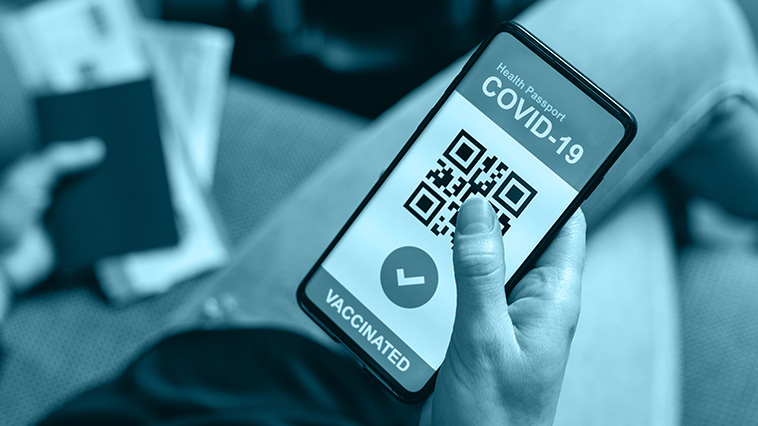Here is a look at some of the legal and ethical concerns regarding vaccine passports.
All aboard! Well, all aboard if you have a vaccine passport. Welcome in! Well, only if you have a vaccine passport. These are a few greetings we’re starting to hear and many are left wondering if/how the government or private corporations can legally require a vaccine passport for customers, and how the Constitution of the United States’ plays a role.
Does the requirement for a vaccine passport interfere with constitutionally guaranteed rights of our citizenry?
Some say yes. Unvaccinated people may be restricted from attending events or church, or even continue to work for their current employer. And, some people believe these potential restrictions infringe upon their rights defined by the Constitution.
Others may argue that in order to keep society safe and healthy, mandatory vaccine passports are necessary to keep COVID from spreading amongst the population. Some believe that the passport restrictions are worthwhile to protect the public at large, because let’s face it, what’s the big deal? It could prevent you from getting COVID or minimize its symptoms, which could prevent your hospitalization or death.
Regardless of your opinions and beliefs, the question transcends science and falls into societal, legal and political realms, as some cities, states and employers require vaccines (or masks) for their employees and citizens while others do not.
But is it legal?
That has yet to be determined. However, a quick overview of the constitutional implications might give us some guidance for the future. States certainly have the power to protect the common good. And, the liberty secured by the Constitution does not import an absolute right to be at all times and in all circumstances wholly freed from restraint. But the liberties guaranteed by the Constitution cannot be abridged.
To determine whether vaccine passports are constitutional requires courts to analyze the issue under the test of “Strict Scrutiny.” First, the court would ask if the individual’s fundamental rights were implicated by a government regulation. If it is, the court would then ask whether there was a compelling governmental interest and whether the restriction was narrowly tailored to achieving that interest, using the “least restrictive means” possible.
In May of this year, Governor Ron DeSantis suspended all local government coronavirus emergency orders when he signed a bill that makes permanent his ban on COVID-19 vaccine passports and limits the authority of cities and counties in future health care crises. A key provision will allow the governor to override local orders during health crises if they are determined to unnecessarily restrict individual rights or liberties. This is an example of the application of the constitutional analysis of strict scrutiny, least restrictive means test.
If the answer to whether vaccine passports are legal was not found in this article, it was intentional. Our state and federal courts will make that determination throughout the country. As you might have guessed, not all states or courts will come to the same conclusion. Ultimately, the Supreme Court of the United states will have to make that determination.





Comments